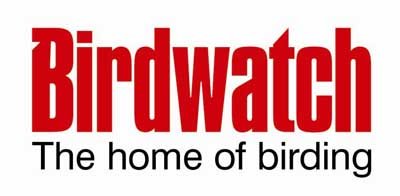 If you live in Fife and feed the birds in your garden you could help the British Trust for Ornithology find out how, why and when birds use Fife’s gardens, and just how important they are.
If you live in Fife and feed the birds in your garden you could help the British Trust for Ornithology find out how, why and when birds use Fife’s gardens, and just how important they are.Being bound to the north and south by large estuaries and having a long coastline, Fife holds important numbers of wildfowl, in both summer and winter. Indeed it is probably the best place in Britain to see the rare Surf Scoter from North America. But just how important are the gardens of Fife for our birds? If you can tell the difference between a Blue Tit and a Blackbird, you could help to find out.
The BTO/CJ Garden BirdWatch survey has been monitoring our garden birds since 1995 and is open to anyone that watches the birds in their gardens. Participants count the birds in their gardens for as little as one hour per week and report their findings back to the BTO. The House Sparrow is in long-term decline across English counties but is actually increasing in parts of Scotland. Do House Sparrows feed in your garden, and if so, how many? The BTO would like to know.
Jacqui Kaye of BTO Scotland said: “Many people wonder why we should record the common species that turn up in our garden but, the recent dramatic declines in birds, such as House Sparrow and Starling, show just how important it is to understand what is happening to garden birds. The fact that these declines have been less severe in many parts of Scotland, also show how important it is to know how garden birds are doing in different parts of the country. Often these local differences can give us clues that will help conserve these species.”
She added: “This is not just looking at the birds out of your window, this is looking at the birds out of your window and making a difference.”
Norman Elkins, BTO Regional Representative for Fife and Kinross, commented: “Garden BirdWatch data for Fife were a valuable source of information for the best-selling Fife Bird Atlas published in 2003. It is a habitat not monitored by any other survey method.”
The importance of recording the birds in gardens can’t be underestimated – collectively they are in effect the biggest nature reserve. By making simple notes of what you see in your garden, you can help the BTO monitor what is happening, and the more people that take part, the greater the understanding that will be gained.
To receive a free information pack about the survey, please send your name and address details to GBW, BTO Scotland, Cottrell Building, University of Stirling, Stirling FK9 4LA (email: scot.info@bto.org; telephone 01786 466560).
Image: Blue Tit by Steve Young
Source: British Trust for Ornithology

